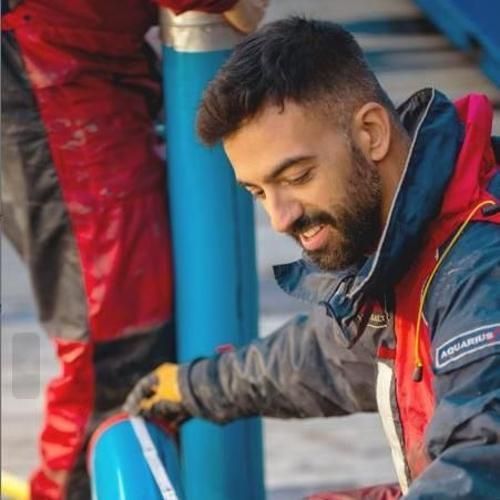
ADRIÁN
LÓPEZ QUIRÓS
PROFESOR AYUDANTE DOCTOR (LOSU)
DEPARTMENT: ESTRATIGRAFÍA Y PALEONTOLOGÍA
FACULTY: FACULTAD DE CIENCIAS
Area: Stratigraphy
Research group: ANALISIS DE CUENCAS
Email: alquiros@ugr.es
Personal web: https://orcid.org/0000-0002-7522-2834
Doctor by the Universidad de Granada with the thesis Cenozoic paleoenvironmental and paleoceanographic reconstructions in the Drake-Scotia gateway 2020. Supervised by Dr. Carlota Escutia Dotti, Dr. Francisco José Lobo Sánchez.
CV AND TEACHING PORTFOLIO SUMMARY: Dr. Adrián López-Quirós is an Assistant Professor at the Department of Stratigraphy and Paleontology (University of Granada, Spain). He holds a BSc in Geology (2014) and two MSc degrees: one in Geology Applied to Mineral and Energy Resources (2015) and another in Teacher Training - Biology and Geology specialization (2021). Dr. López-Quirós completed his PhD in Earth Sciences at the IACT-Spanish National Research Council in 2020. During his PhD, he conducted research at the Department of Earth Systems Science (Stanford University) and the International Ocean Discovery Program (IODP at Texas A&M University, USA). From 2021 to 2024, Dr. López-Quirós conducted postdoctoral research supported by two competitive fellowships in highly recognized research groups. The first (2021-2023; 2-year DFF postdoc) in the Paleoceanography and Paleoclimate group at the Department of Geoscience, Aarhus University (Denmark). The second (2023-2024, 2-year Juan de la Cierva postdoc) in the RNM190 Basin Analysis group at the Department of Stratigraphy and Paleontology, University of Granada. With expertise in sedimentology and paleoenvironmental reconstructions, Dr. López-Quirós’ research has focused primarily on understanding the responses of the Antarctic and Greenland ice sheets to past climate change. To date, Dr. López-Quirós has authored 40 peer-reviewed publications, of which 26 have been published in top SCI-indexed journals in geoscience (9 as first author), and has presented >90 works at conferences (27 as first author; 12 oral presentations/2 invited talks). During his pre- and post-doctoral research career, he has participated in 13 research projects (>2.6M€), of which he has secured >30.000€ in funding as (PI)/Co-PI, raised >290.000€ in salary through competitive fellowships, and won two conference presentation awards. In 2023, Dr. López-Quirós was also a recipient of funding from Horizon Europe's Marie Skłodowska-Curie Actions, securing €156,778. Since 2017, he has participated in 8 international oceanographic expeditions to Antarctica (x4), Greenland-Arctic (x2), and the Mediterranean (x2). Moreover, he was responsible for laboratory work and the coordination of oceanographic expedition objectives, along with other institutional responsibilities. These include leadership in coordinating 3 scientific sessions at international conferences/workshops (e.g. at EGU 2023), serving on the editorial boards of 2 SCI journals (e.g. Frontiers in Earth Sciences), reviewing >20 SCI publications and 1 EU national project, and conducting >15 national/international outreach activities to promote geoscience literacy. In addition to his research, Dr. López-Quirós has been actively involved in teaching since 2017, with >370 teaching hours and supervision at both the University of Granada and Aarhus University. At the University of Granada, he has contributed to various undergraduate modules in both the Biology and Geology bachelor’s degree programs, as well as taught in the specific module ‘Complementary Training in Biology and Geology’ within the MSc Degree in Teacher Training. At Aarhus University, he taught the module ‘Oceans and Climates’ in the BSc Degree in Geoscience. Regarding supervision, Dr. López-Quirós has supervised 2 BSc and 4 MSc theses, the research work of 2 exchange students from Chile and the USA, and 1 BSc research scholarship (UGR-Banco Santander initiation grant). His supervised projects have covered a wide range of topics in sedimentology/sedimentary petrology, and stratigraphy, including sediment facies analysis, the use of authigenic minerals such as the green clay ‘glauconite’ as paleoenvironmental and stratigraphic markers, seismic stratigraphy, and research into science education and geoscience and climate literacy.










